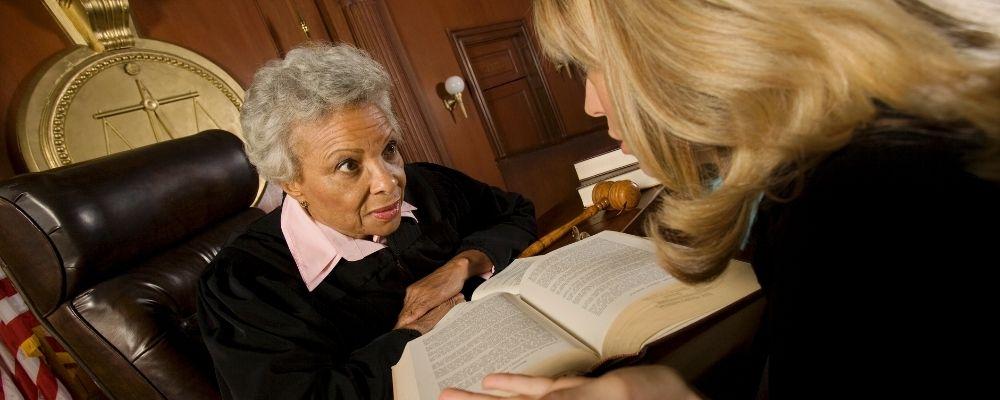The legal purpose of the preliminary hearing is to require the DA to show the judge that the DA has at least some evidence that the defendant committed the crime that he or she is accused of.
All defendants accused of felonies have the right to have a preliminary hearing and then a trial within a certain time period. If you are in jail, you should not waive these rights unless there is a good reason that will actually help your case. Good reasons might be a defense expert or investigator investigating the case and preparing a report, filing a motion to help your case, and having your attorney meet with the DA supervisor to try to get a better offer. The DA being unprepared, the court’s schedule, etc. are not good reasons, and you should not waive time for those reasons.
It is our ethical duty to seek informed consent whenever a client is waiving time for any potential benefit. Sometimes, if the DA is dragging his or her feet, we advise clients to not waive time between one check-in date and the next. This is all case-dependent, but the bottom line is that any “time waivers” should always be for the defendant’s benefit, and the decision to waive time temporarily is always up to him or her.
The standard of evidence is different at a preliminary hearing than at trial. While at trial, the DA must prove the defendant guilty beyond a reasonable doubt, at a preliminary hearing, they only need to show “probable cause.” This is an extremely low standard and is the same exact standard used to arrest someone. Also, in California, the actual witnesses against the defendant usually don’t need to testify, although they might; the DA can simply call a police officer as a witness who will testify to whatever that witness told police. Therefore, in most cases, charges will not be reduced or dropped at a preliminary hearing.
But the defense can take advantage of the preliminary hearing in a few key ways:
- Opportunity to Cross-Examine Witnesses. It is absolutely essential that, if the witnesses do appear, the defense asks them all questions that we would want to ask at trial. This way, if the witness changes his or her testimony at trial, we can use their changed testimony to show their lack of credibility. Also, at a trial in front of a jury, the defense generally does not want to risk asking a question that we don’t know the answer to, so this gives us the chance to ask them without risk of the jury hearing an answer that is bad for our side. We also have the opportunity before trial to investigate proof that will discredit any lies told by the witness and later use it to “impeach” (discredit) that witness. Additionally, sometimes the witness will change his or her story from that he or she told the police, we lock them into those statements and use that inconsistency to revisit settlement negotiations with the DA after the preliminary hearing.
- Pointing Out the Weaknesses in the Prosecution’s Case. Sometimes, the DA has not paid enough attention to the case to see the weakness that we know exist. The defense should, in general, take the opportunity at the preliminary hearing to point out to the court and DA problems with the case.
- Sometimes, when we look through the discovery (evidence) in the case, we will have questions that we want to ask officers to confirm the existence or non-existence of certain evidence. Some examples are, “Did you test my client’s clothing for gunshot residue?” or “Did you collect any video from the scene?” This is our chance to ask those questions and require the officer to answer, and it eliminates the possibility of being surprised later on. (“Discovery” is actually not a valid reason to ask questions at the preliminary hearing, but a good defense attorney will slip them in wherever possible to take advantage of this opportunity.)
At the end of the preliminary hearing, the defense attorney should always make a motion to dismiss the case based on lack of evidence. The prosecution will argue against it. The court will almost always deny the defense motion to dismiss.
The court will make a statement saying that there is sufficient evidence to show that a crime was committed and the defendant committed it in order “hold the defendant to answer,” and then will set a next court date. Sometimes, people think that this means that they lost the preliminary hearing and the prosecution won, but that is not really the case. As long as the defense has done a thorough job asking all of the questions necessary of the witnesses for the purposes of discovery, setting up discrediting the witnesses (either at trial or when continuing negotiations with the DA), the preliminary hearing was a success.
(Also, with limited exceptions the defense does not present witnesses or evidence at the preliminary hearing. We have no obligation to do so, and by doing so, we’d give the prosecution the same advantages that we enjoy by cross-examining their witnesses at the hearing.)


